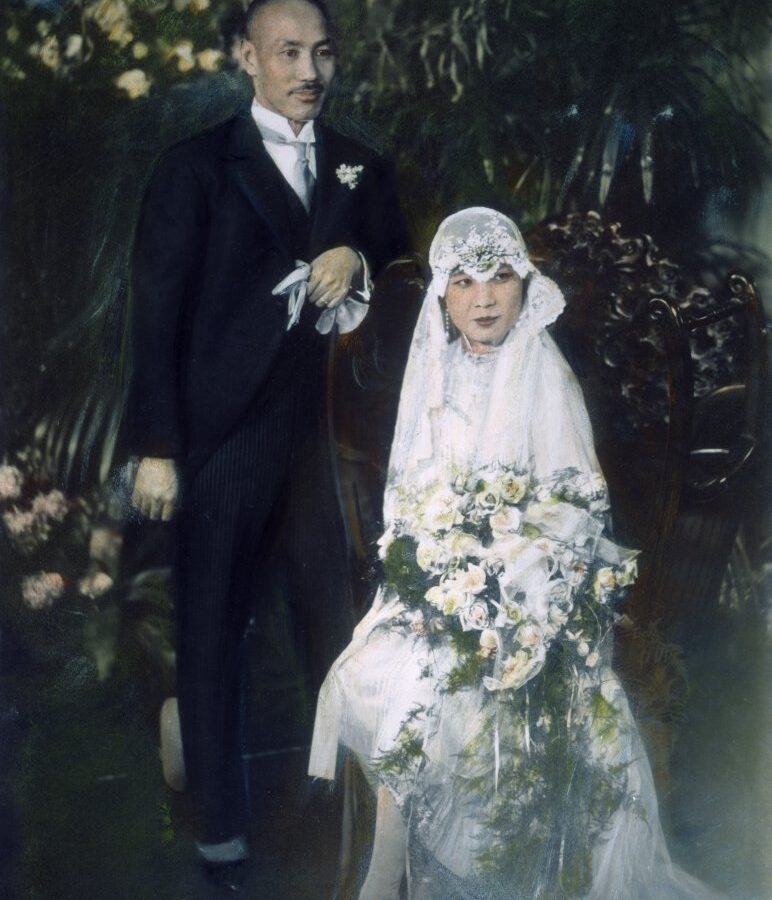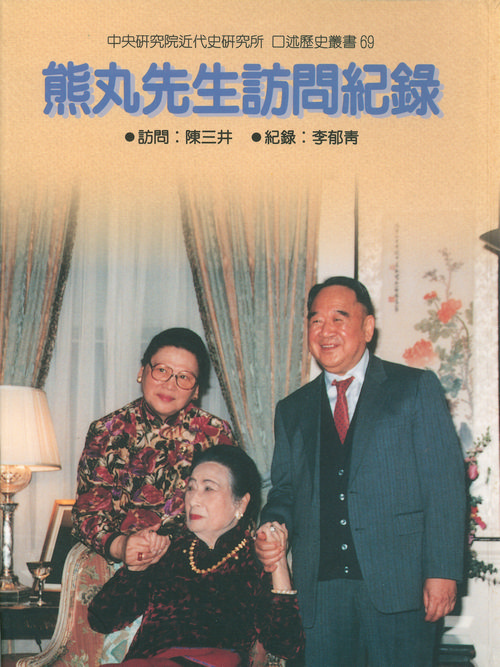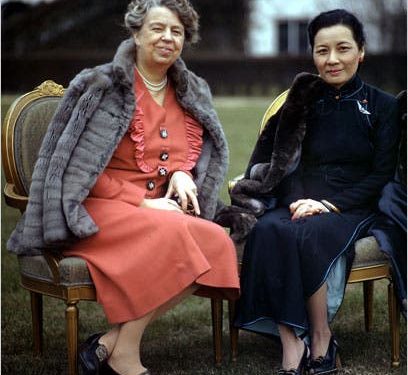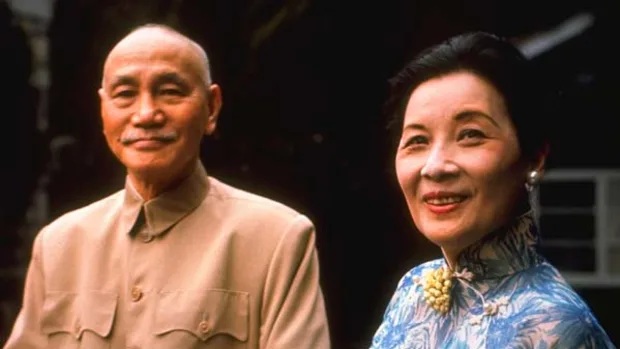One evening at a dinner party, a friend showed me an old photo of herself wearing a qipao from over 30 years ago. I couldn’t help but exclaim: “You look just like Soong Mei-ling reborn!” The room burst into laughter, and our friend beamed with joy, thrilled by the comparison to the eternal First Lady of the Republic of China. It was a moment that revealed a shared sentiment: Everyone admired Madame Chiang’s grace and elegance wearing traditional Chinese attire.
Dr. Hsiung Wan (Xiong Wan), a native of Shizhu County in Sichuan Province, served as a physician at the residence of President Chiang Kai-shek from 1943 until Chiang died in 1975. He graduated with distinction from Tongji University’s School of Medicine in Shanghai and, during the war, served as an assistant professor of surgery at the same institution in Xufu. For his work, he was awarded the Order of Yunhui in the third and fourth classes. Accounts of his interview are preserved at the Institute of Modern History, Academia Sinica.
Madame Chiang lived to the age of 106, her life a sweeping reflection of a century of modern Chinese history. She married Chiang Kai-shek at the age of 29. When the Xi’an Incident erupted, in which generals Zhang Xueliang and Yang Hucheng detained Chiang, she was just 38 and traveled to Xi’an herself to secure his release. What did Dr. Hsiung observe about her daily life and her secret to longevity?

A cultured life, rooted in discipline and art
Madame Chiang would rise at 11 a.m., starting her day with a simple breakfast of cocoa, biscuits, and fruit. She loved wearing qipaos and could still fit into those she wore over 30 years earlier — a testament to her disciplined lifestyle and maintained figure. All dressed within minutes of waking, she would sit at a large table in the living room, painting or writing. At 1 p.m., she joined the Generalissimo for lunch.
Due to dietary restrictions related to allergies, she avoided seafood and ate only a select few types of fish. After lunch, while Chiang took his afternoon nap, she would read newspapers or paint. By 4 or 5 in the evening, Chiang would say: “Darling, let’s go for a walk,” and they would take a drive together.
After dinner, Chiang returned to his study to review documents, while Madame Chiang read. She often opened the curtains in the living room, revealing bookshelves built into three of the walls. She was an avid reader, frequently spending six to seven hours a day absorbed in books, primarily foreign ones, rarely Chinese. She skimmed through Chinese newspapers quickly, but her primary focus was on in-depth reading.
A quiet faith, a life of service
According to Dr. Hsiung, Madame Chiang was the most devout believer in God he had ever encountered. No one, he said, could match her unwavering faith. In the bathroom of her bedroom at the Shilin official residence in Taipei, she hung a quote in English: “I come to this world only once. What I should do, I will do right now. I will not pass them [by], because I come to this world only once.”
It was her life’s creed — a firm reminder to seize every opportunity to do good. She often said: “If you want to do good, just do it. Don’t worry about whether others know you did it. God knows, and that’s what matters.” According to Dr. Hsiung, Madame Chiang regularly performed acts of charity without ever leaving her name. When asked, she would say: “Don’t use my name — I don’t seek fame or reward.”
Even in her later years in the United States, she remained committed to service: “As long as I can still help those in need, that is the mission the Lord has kept me alive for. I don’t need to tell anyone what I’ve done — because I do it for God. God kept me alive for a reason. I now try to discern His will and do what I’m meant to do. As for myself, I ask for nothing more.”
After the Xi’an Incident, she told Dr. Hsiung that she always believed the Lord would not allow Chiang to be killed and plunge the nation into chaos. She felt it was His will for her to intervene. The moment she heard about the incident, her first thought was that she had to go to Xi’an herself. Before leaving, she handed a pistol to Huang Renlin with the solemn instruction: “If anyone, including Zhang Xueliang or Yang Hucheng, takes any action that is disrespectful to me in any way, shoot me first. This is an order that cannot be violated.”
Madame Chiang would rather die than be humiliated. When she arrived in Xi’an, Chiang asked her why she had gone there. She replied: “You are someone willing to sacrifice for the nation. I, too, am willing to sacrifice for our country and our family. Of course, I had to come.” On Christmas Eve, she prayed intensely and received a spiritual prompting: “Tomorrow, you can return to Nanjing.” Sure enough, the Xi’an Incident ended on Christmas Day.
She later told Dr. Hsiung: “You must believe in God. I have believed in Him my entire life and never made a wrong decision. Every direction the Lord has given me has been right. If you have faith, He will guide you; if you do not, He cannot help you. God cares for those who believe in Him.”

Compassion without recognition
Dr. Hsiung also shared how Madame Chiang supported elderly pastors throughout Taiwan, including those in remote areas, such as Hualien. She convinced Chen Mianxiu’s wife from the Land Bank of Taiwan to take care of many elderly clergymen, and even paid their salaries herself.
She helped build churches in Taipei and Lishan. Her sister, Soong Ai-ling (Madame Kung), also anonymously funded the construction of chapels, which were attributed to the indigenous people’s fundraising instead. Madame Chiang founded the Huaxing Orphanage, initially for the children of fallen soldiers from the Dachen Islands, but later expanded it to serve all poor and orphaned children. She opened the Cheng Hsin Hospital to treat polio, then common in Taiwan, and helped the Women’s Federation raise funds to build homes for military families. She also initiated the building of the Grand Hotel in Taipei to host U.S. military officials and foreign dignitaries. From Dr. Hsiung’s observations, everything Madame Chiang did was done with genuine good intentions.
She often said: “Except God, there is no perfect person in this world — we all make mistakes.” Yet Dr. Hsiung believed she was someone who made very few mistakes — a near-perfect person in his eyes. She paid no attention to slander or rumors from the media. She had no interest in fame or wealth and once told him: “I don’t care what people say about me. I ask for nothing. God knows everything I do.”
Some wonder why she never wrote an autobiography, choosing instead to take her secrets to the grave. But perhaps this, too, reflects her character — one that did not seek personal glory, was detached from worldly accolades, and cared little about how future generations would judge her.

In summary
In the panorama of modern Chinese history, Madame Chiang repeatedly demonstrated courage, integrity, and a moral compass guided by faith. How could today’s politicians, who chase short-term gains and bend to authoritarian powers, ever compare? Thanks to Dr. Hsiung’s quiet observations, we may now understand her secret to longevity — not just in years, but in legacy.
Translated by Katy Liu and edited by Laura Cozzolino
Follow us on X, Facebook, or Pinterest

